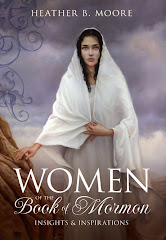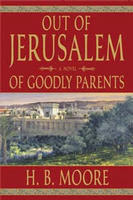Fasting is painful. Literally. It wears you out, makes you cranky, and might even give you a pretty big headache. That is if you go the whole twenty-four hours, or even the two-meal deal. When I was sixteen, I fasted for twenty-four hours—for the first time ever. It was the day I received my patriarchal blessing. It was also the day that I felt the Spirit flood my body for the first time. Coincidence? No.
Since then, I’ve tried to be prayerful when fasting. The powerful experience that I received at sixteen hasn’t repeated itself, but I’ve had other, smaller, faith-building incidents along the way.
When I married and started having children, followed by nursing, it seemed that the years stretched on with little opportunity to fast. Either I was pregnant, or nursing, or dealing with some illness that was passed back and forth between myself and the kids. One Fast Sunday, when I was pregnant with my third child, a woman stood up in Relief Society to bear her testimony. You know those last three minutes of the meeting when the Presidency turns the time over for testimonies. This sister said something I’ll never forget. “Today I’m fasting even though I really have nothing to fast for.”
My eyes immediately filled with tears. I couldn’t fast, yet I had several things I wished I could be fasting for. “Fast for me,” I wanted to say. And then she did say it: “But I’m fasting because I know I’m supposed to, and maybe someone’s prayer will be answered.”
That day, my prayers were answered because someone else was fasting for me. Through the blessings of the fast, I was able to partake because of someone else’s obedience.
The LDS religion is not the only faith to incorporate the principle of fasting. Almost from the beginning of man’s existence, fasting has been the key to communicating with God. In the Old Testament, the people of Ezra sought protection of the Lord: “We fasted and besought our God” (Ezra 8:21–23, 31). Also, Nehemiah fasted and prayed for the people in Jerusalem: “I fasted and prayed before the God of heaven” (Neh. 1:4). Even Jesus Christ found it necessary to fast: “he had fasted forty days and forty nights” (Matt. 4:2).
Some of the most poignant examples of fasting are recorded in the Book of Mormon. When Alma the Younger was going about to destroy the kingdom of God, an angel intervened and rebuked him. Alma the Younger was struck by the power of God and lost the power of speech and all of his strength. His father, Alma the Elder, rejoiced that his son had been called to repentance by the Lord, yet he called the people of the church together to “fast, and to pray to the Lord their God,” so that his son might recover his strength and share his experience with others (Mosiah 27:22).
It is a difficult task for a parent to instill a desire to fast in their children. It continues to be an on-going process in my family. Through studying Alma the Younger’s story in the scriptures, we can help our children understand that fasting is a key component in developing and strengthening their testimony. Alma the Younger credits fasting as a part of his complete conversion: “And how do ye suppose that I know of their surety? Behold, I say unto you they are made known unto me by the Holy Spirit of God. Behold, I have fasted and prayed many days that I might know these things of myself” (Alma 5:45–46).
God has commanded His people to fast often, “I give unto you a commandment that ye shall continue in prayer and fasting from this time forth” (D&C 88:76, emphasis added).
In our Church today, each month one Sabbath day is reserved for fasting. The purpose of fasting is two-fold. First, to develop greater spiritual strength. During Fast Sunday we are expected to go without food or water, then contribute the money we would have spent on meals in the form of a fast offering. This fast offering is then distributed through the ward and/or stake to “assist the poor and needy” (see Topical Guide).
Yet, the “poor and needy” has taken on a whole new meaning over the past year with the volatility of the economy, both nation-wide and internationally. On the news, we hear that the economy is finally rebounding and the DOW is on an upward swing. But the fact remains that the unemployment rate was 9.8% in September, 2009 (the highest since 1983).
The law of the fast is more important than ever. We must continue to fast, for ourselves, for others, and for the Church. We must put our faith in Him and contribute when and where we can to His kingdom to bless our neighbors—to bless those who cannot fast for themselves. I am grateful that I’m healthy enough right now so that I can fast. And I’m grateful for the times when I haven’t been, that others have fasted in faith—blessing me through their obedience.
Monday, November 23, 2009
Subscribe to:
Post Comments (Atom)














2 comments:
Thanks Heather for a powerful reminder and new insights into fasting.
Heather, I enjoyed the comment about the woman who said she didn't know why she was fasting, but knew that there was someone out there who needed it. That is a very powerful message. Thank you for sharing it.
Post a Comment